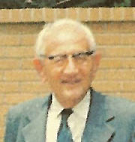

Pólya was a prolific and brilliant mathematician who made important contributions in combinatorics, number theory, probability, complex analysis, and partial differential equations. Pólya grew up in Hungary, and received the doctorate degree from the University of Budapest in 1912. He worked in Germany, Switzerland, and England, before moving to the United States. In addition to many journal articles, Pólya wrote (or co-authored) a number of classic books that are still widely read. Two examples are Inequalities, with Hardy and Littlewood (1934), and How to Solve It (1945). Pólya exerted a profound influence on his coworkers and students.
To students of probability, Pólya is remembered for his famous urn models.